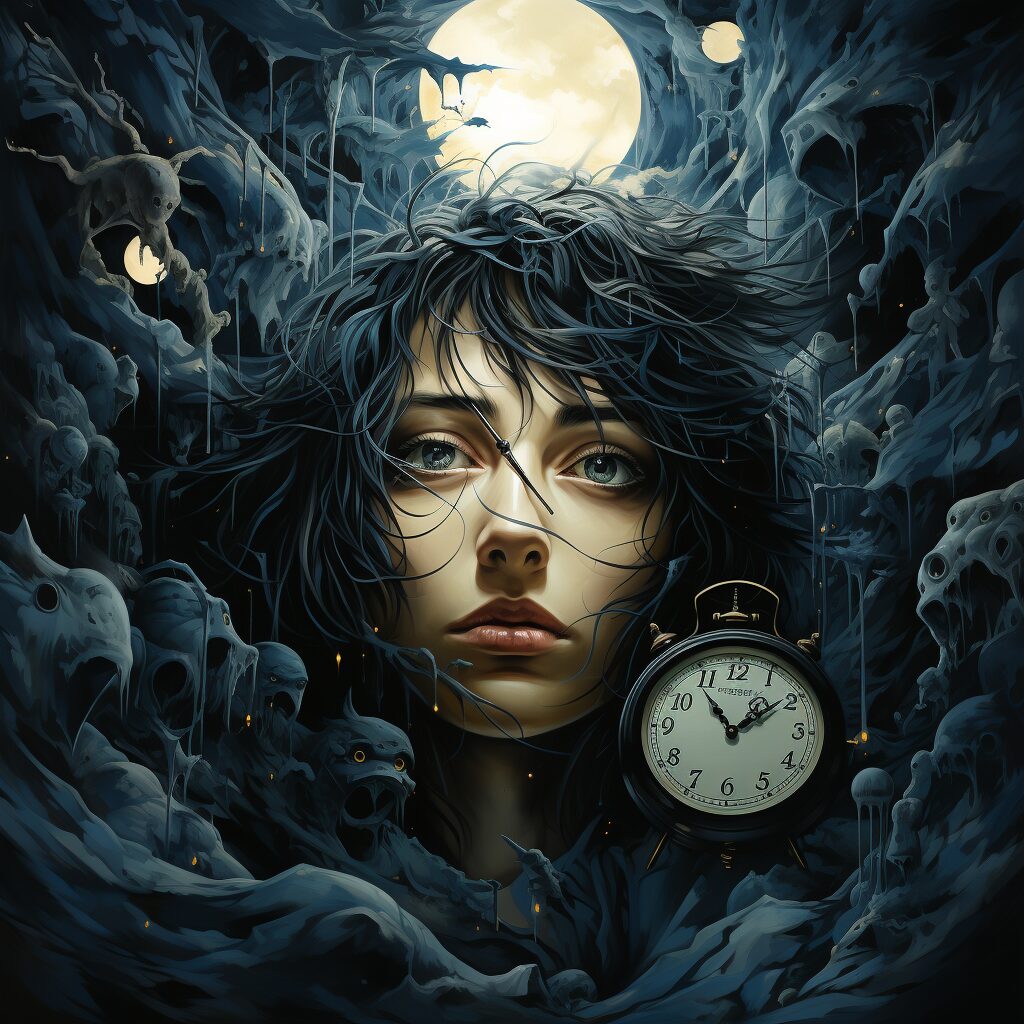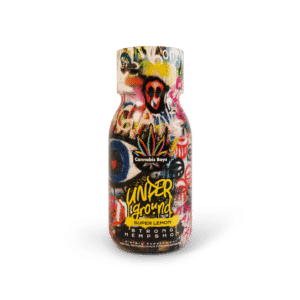Insomnia is one of the types of sleep disorders, along with, among others: excessive sleepiness, frequent waking up and disruption of the circadian sleep-wake cycle. Sleep disorders as such often co-occur with other mental disorders, e.g. depression and somatic diseases. There are a number of paths to treating insomnia, CBD and other hemp cannabinoids are being investigated for use in the treatment of sleep disorders.
Insomnia – when is it diagnosed?
Insomnia is classified in the DSM-5 as one of ten sleep-wake disorders.
Patients experiencing sleep disorders usually find their sleep unsatisfactory, both in terms of its quality and duration, as well as sleep times. A common result of lack of proper regeneration is a feeling of constant fatigue, low mood, poorer concentration and irritability. .
According to the DSM-5 diagnostic criteria, insomnia occurs when a patient describes his/her sleep as unsatisfactory due to one or more symptoms:
- difficulty falling asleep,
- difficulty maintaining sleep – frequent waking up, difficulty falling back asleep after waking up,
- waking up early in the morning and having difficulty falling back asleep.
The patient declares that sleep disruption reduces the quality of life and makes it difficult to function during the day.
In insomnia, sleep difficulties occur at least three nights a week. Insomnia is also classified as episodic (sleep-related difficulties occur for more than one month but less than three months), persistent (sleep-related difficulties occur for more than three months) and recurrent (sleep-related difficulties occur at least twice in the last three months). last year).
(Insomnia Severity Index) scale is used to determine the intensity of insomnia symptoms, which helps determine its severity. The scale contains seven questions that concern: difficulty falling and staying asleep, waking up too early, the environment's reaction to sleep problems, how one feels during the day, the extent to which a person worries about sleep problems and the degree of satisfaction with a night's rest.
Other diagnostic criteria for insomnia include:
- Insomnia occurs despite favorable sleeping conditions.
- Insomnia cannot be explained by another sleep-wake disorder.
- Sleep disorder is not caused by taking any substance: drugs or psychoactive substances.
- Co-occurring mental and somatic disorders do not fully explain sleep problems.
Other sleep-wake disorders:
- insomnia disorders,
- hypersomnia disorder,
- narcolepsy,
- sleep disorders related to breathing disorders during sleep,
- disturbances of the circadian rhythm of sleep and wakefulness,
- disturbances associated with waking up during non-REM sleep,
- nightmares,
- REM sleep behavior disorder,
- restless legs syndrome,
- substance/drug induced sleep disorder.
Insomnia and other diseases
Sleep disorders may be an early symptom of other mental disorders and may accompany depression, anxiety disorders or cognitive . They are also a risk factor for addiction to psychoactive substances, with which patients try to save themselves (at night: alcohol, opioids, benzodiazepines; during the day: stimulants such as amphetamine or cocaine, excessive consumption of caffeine and nicotine). It is because of this co-occurrence that sleep disorders are included in the classification of mental disorders.
The co-occurrence of sleep disorders with somatic diseases is so common that it is considered the rule rather than the exception . The most common co-occurring diseases are: sleep disorders related to breathing disorders during sleep, diseases of the circulatory and respiratory systems, neurodegenerative diseases, diseases of the musculoskeletal system, and diseases of the cardiovascular system .
A closed circle of insomnia
In psychiatry, the phenomenon of the closed circle of insomnia is known, when the thoughts, emotions, actions and physiological reactions of patients fuel insomnia. People who have trouble falling asleep and observe the negative effects of lack of sleep during the day, after some time begin to stress about this situation, which only makes it difficult for them to calm down and fall asleep in the evening. Stress causes physiological arousal, is accompanied by greater preoccupation with the topic of sleep and paying excessive attention to it, which often leads to the problem getting worse.
Behaviors that perpetuate insomnia and increase body arousal:
- abnormal sleep times,
- sleeping during the day,
- spending too much time in the bedroom or bed
- fear of insomnia,
- concerns about how you will function during the day,
- obsessively checking the watch at night,
- night activity in the bedroom (e.g. cleaning the bedroom at night with the light on).
Insomnia – treatment
Psychotherapy
The goal of therapy may be to break the vicious circle in which mental and behavioral factors reinforce insomnia. Cognitive-behavioral psychotherapy helps change beliefs and habits that are harmful to sleep.
Recommendations for people suffering from insomnia include: avoiding other activities in bed (eating, watching TV, reading), limiting the time spent in bed and stimulus control techniques. The idea is that a person suffering from insomnia goes to bed when they are sleepy and are most likely to fall asleep. In case of waking up, it is recommended to leave the bed/bedroom and return only when drowsiness appears - the idea is to build a bed-sleep association.
Drug therapy
Antidepressants or antianxiety medications are used to treat insomnia. In lighter forms, melatonin is also used, which has a beneficial effect on the quality and quantity of sleep in older people or in people experiencing insomnia due to shift work or frequent crossing of time zones (jet lag).
CBD for the treatment of insomnia
A review of research on medical cannabis and insomnia suggests that CBD may have therapeutic potential here.
- The full spectrum of hemp cannabinoids can alleviate sleep apnea and thus positively affect a person's well-being during the day, including: reducing drowsiness and fatigue.
- CBD is considered a promising substance for REM sleep disorder, which causes daytime sleepiness.
- Synthetic CBD (nabilone and dronabinol) has beneficial, short-term effects in sleep apnea.
- Nabilone helps people reduce the number and intensity of nightmares. It also makes it easier for patients whose insomnia is associated with chronic pain to fall asleep.
The results of another study show the beneficial effect of CBD on the quality and duration of sleep in insomnia occurring with anxiety disorders . Researchers followed 72 adults experiencing anxiety and/or insomnia who were given CBD.
In the first month of treatment, 57 out of 72 (79%) people observed a lower level of anxiety (it persisted until the end of the study), 48 out of 72 (68%) declared an improvement in the quality and duration of sleep, and as the treatment continued, the percentage increased. The vast majority of people tolerated CBD well.
Most scientific articles reporting on the effects of CBD and other hemp substances on sleep disorders and insomnia conclude that researchers are optimistic about using the therapeutic properties of these substances in the future. They see the need for more clinical trials involving patients diagnosed with sleep disorders.








